SUMMARY
This is AI generated summarization, which may have errors. For context, always refer to the full article.
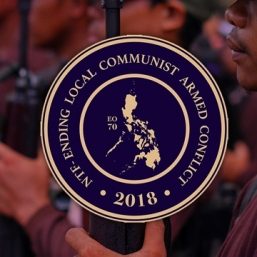
Over a million pesos in anti-insurgency task force funds lodged under the Office of the Presidential Adviser on the Peace Process (OPAPP) lacked supporting documents to vouch for their validity, said the Commission on Audit.
In its 2020 annual audit report of the OPAPP’s budget, the state auditor said supporting documents for P1.36 million in ELCAC Fund expenses, or funds used for the National Task Force to End Local Communist Armed Conflict (NTF-ELCAC), were not submitted to the Office of the Auditor.
“Various vouchers and their corresponding supporting documents pertaining to the ELCAC fund for CY 2019 were not submitted to the Office of the Auditor, contrary to Paragraph 6.05 of COA Circular No. 95-006 dated May 18, 1995,” said the report in its observations and recommendations portion.
This non-submission violates rules requiring that receipts and disbursement records “with all paid vouchers and documents evidencing the transactions” be submitted to the auditor within 10 days from the receipt of such documents.
That these documents were lacking means the “reliability and validity of the transactions could not be determined,” said COA.
The P1.36 million in flagged expenses is more than half of the total worth of OPAPP transactions that the COA said lacked supporting documents.
OPAPP Assistant Secretary Wilben Mayor – in a letter to Rappler dated August 27 and received August 31 – said the agency sought to address the COA’s concerns on lack of documentation by submitting the missing disbursement vouchers and journal entry vouchers. The latest submission was in February.
In a meeting with COA auditors, OPAPP explained that the delay in submitting the documents was because the signatories for them were not available “due to manpower limitations during the imposition of community quarnatines.”
One other reason was the “limited to non-availability of office supplies or materials” used by OPAPP to ensure proper labeling and tagging of the vouchers.
OPAPP’s role in NTF-ELCAC
But the COA also recognized OPAPP’s accomplishments and use of NTF-ELCAC funds.
The agency noted the OPAPP was able to draft local peace engagement (LPE) guidelines and communicate them with stakeholders during ELCAC summits. OPAPP helped in increasing the number of communist rebel surrenderees, said the COA.
Of the total P10.4 million ELCAC budget given to OPAPP in 2019 and 2020, P9.98 million was disbursed, meaning they were released by the office to be spent for the implementation of programs.
OPAPP is a member of the task force and serves as co-lead agency of its Local Peace Engagement Cluster. It is also lodged under President Rodrigo Duterte’s office.
No use of Marawi funds in 2020
But while OPAPP remained active in anti-insurgency programs, it did not make use of funds it had been given for Marawi rehabilitation efforts.
COA said the OPAPP reported “no other transactions” related to the use of Marawi funds for the year 2020. OPAPP is not the government agency in charge of Marawi rehabilitation. This responsibility lies with the housing department and Bangon Marawi Task Force.
This was after the office had to return P15 million to the Bureau of Treasury in December 31, 2019 because it failed to use the funds which were intended for Marawi.
This amount was a part of a P24.95 million release by the budget department to OPAPP to “support the project/program focused on social healing and peace building” of the office in Marawi. This fund had been sourced from the National Disaster Risk Reduction and Management Fund (Calamity Fund) under the 2018 national budget.
But of this amount, OPAPP was only able to obligate (or commit for payment) P4.1 million by the end of 2018. The following year, of the P20.8 million left over, the office was able to obligate only P5.8 million or 28%. The funds that remained, P15 million, had to go back to the Bureau of Treasury.
Mayor said, however, that the non-use of this amount in full does not mean OPAPP implemented no Marawi projects. He said that the office used some of its regular funds in 2017 under its Social Healing and Peacebuilding Program.
When more of the P24.95 million fund was released second semester of 2019, some of it could not be used because of the 2019 election ban on spending and the “volatile peace and security conditions” in Lanao del Sur, said Mayor.
But COA also noted how, in 2020, or the year the COVID-19 pandemic struck, OPAPP funds were realigned towards the health crisis response.
This was partly because OPAPP’s head, Presidential Adviser on the Peace Process Carlito Galvez Jr. was designated chief implementer of the government’s pandemic plan.
“For CY 2020… the OPAPP has realigned its allotments to be used solely for COVID-19 related expenditures, particularly in support of Secretary Galvez’s designation as the Chief Implementer of the Philippines’ declared national policy against COVID-19,” reads the report. – Rappler.com
Add a comment
How does this make you feel?
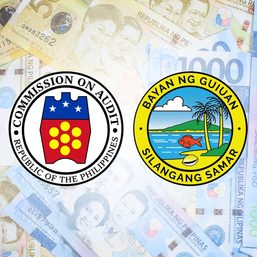
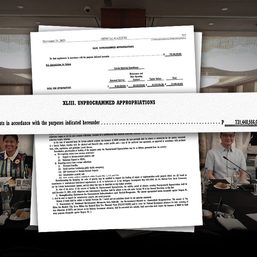
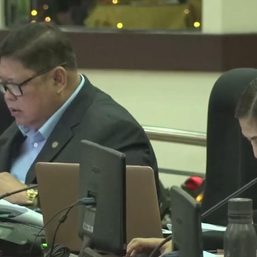

![[Under 3 minutes] Did DepEd waste P3-B worth of learning materials?](https://www.rappler.com/tachyon/2023/12/titlecard-ls.jpg?resize=257%2C257&crop=415px%2C0px%2C1080px%2C1080px)
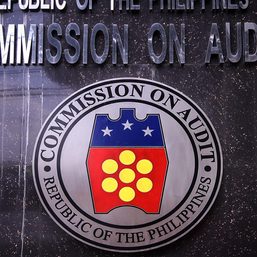
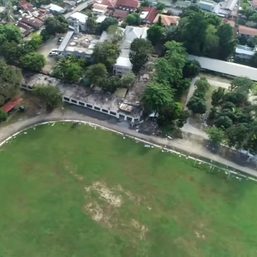
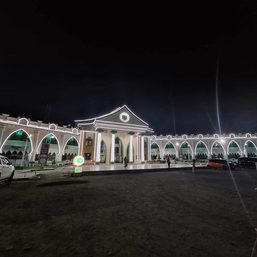
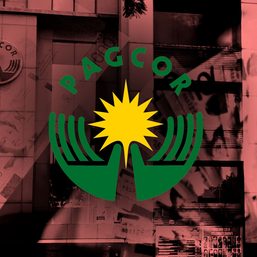
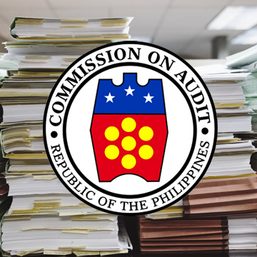

There are no comments yet. Add your comment to start the conversation.